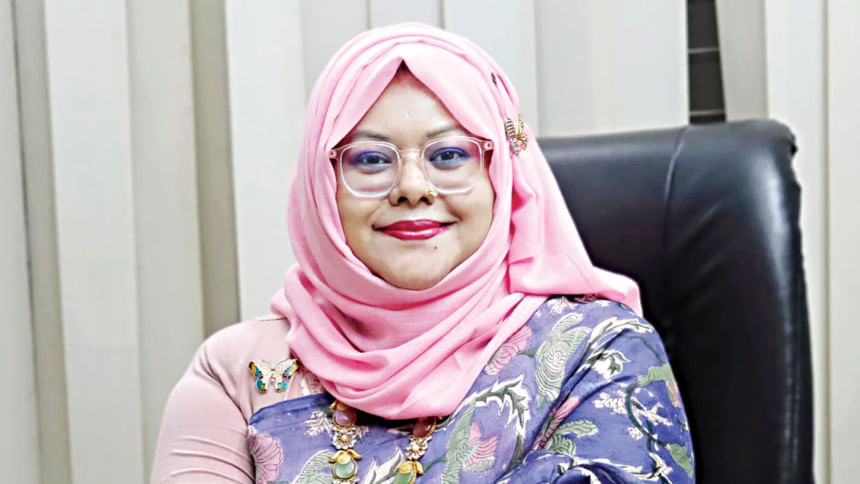AI, empathy, and Innovation

Nazah Salawat Principal, Daffodil International School'sThe Daily Star interviewed Daffodil International School's principal, Nazah Salawat. In the interview she spoke about DIS's vision of value-based, future-ready education and how the school integrates AI, STEM, teacher development, assessment and co-curricular programmes to prepare students for global challenges.The Daily Star (TDS): How does the school's motto — "Value, Culture and Innovation" — shape daily practice?Nazah Salawat (NS)...
Nazah Salawat
Principal, Daffodil International School's
The Daily Star interviewed Daffodil International School's principal, Nazah Salawat. In the interview she spoke about DIS's vision of value-based, future-ready education and how the school integrates AI, STEM, teacher development, assessment and co-curricular programmes to prepare students for global challenges.
The Daily Star (TDS): How does the school's motto — "Value, Culture and Innovation" — shape daily practice?
Nazah Salawat (NS): The motto guides a blended approach: Cambridge and Edexcel curricula delivered with activity-based and Montessori-informed pedagogy. Classrooms prioritise inquiry, collaboration and hands-on learning while pastoral care, counselling and leadership opportunities reinforce character and resilience.
TDS: What distinguishes your school's pedagogy and student outcomes?
NS: DIS combines academic rigour with experiential learning. Signature programmes — a Montessori Lab, Life Skills Academy, STEM and robotics labs, and structured project work — produce strong IGCSE results alongside growth in creativity, communication and problem solving.
TDS: How is AI changing your school's teaching strategy and what guidance do you give teachers and students about using AI?
NS: AI serves as an instructional enabler. Teachers use AI tools for lesson planning, personalised practice and formative checks; students learn critical evaluation of AI outputs and plagiarism avoidance. The school has an AI policy and ongoing teacher training to ensure ethical deployment.
TDS: How do you ensure ongoing teacher quality and professional development?
NS: Continuous professional development includes Cambridge and British Council workshops, in-house mentoring, peer observations and leadership pathways. Classroom observation and performance reviews keep teaching student-centred and aligned with global best practice.
TDS: What is your approach to assessments and how you support students who excel or who need extra help (academic and emotional).
NS: Assessment blends formative, summative and project-based tasks. Regular progression tests, portfolios and feedback inform instruction. High achievers access enrichment while remedial classes, shadow teachers and counselling assist learners needing support.
TDS: What extracurricular activity (ECA) and co-curricular programmes do you run (clubs, sports, arts, debate, MUN, competitions) and how do you think they are linked to student development?
NS: ECAs like debate, arts, music, sports, coding, MUN and community service have broad participation and are linked to leadership and resilience development. Facilities and coaching support active engagement across age groups.
TDS: What are your strategic priorities for the next 2–5 years (facilities, curriculum changes, new programmes)?
NS: Priorities include deeper STEM and AI integration, a digital learning hub and auditorium, stronger life-skills and sustainability education, and enhanced student wellbeing. Progress will be measured through academic indicators, participation rates and wellbeing metrics.